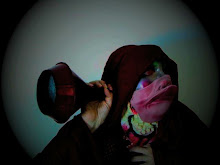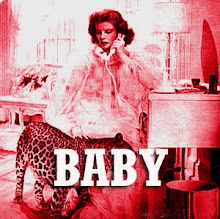Essay: Anne Carson’s ‘The Gender of Sound’
From : The Voice is a Language
dated March 29, 2010 ·
quote "It is in large part according to the sounds people make that we judge them sane or insane, male or female, good, evil, trustworthy, depressive, marriageable, moribund, likely or unlikely to make war on us, little better than animals, inspired by God. These judgments happen fast and can be brutal. Aristotle tells us that the highpitched voice of the female is one evidence of her evil disposition, for creatures who are brave or just (like lions, bulls, roosters and the human male) have large deep voices. If you hear a man talking in a gentle or highpitched voice you know he is a kinaidos (“calamite”). The poet Aristophanes puts a comic turn on this cliché in his Ekklesiazousai: as the women of Athens are about to infiltrate the Athenian assembly and take over political process, the feminist leader Praxagora reassures her fellow female activists that they have precisely the right kind of voices for this task. Because, as she says, “You know that among the young men the ones who turn out to be terrific talkers are the ones who get fucked a lot” (1 13-1 14).Anne Carson’s convincing and well-researched essay lists a history of the gendered voice, from Sophocles to Gertrude Stein. Here she outlines what is at stake in our assumptions of sound, questioning whether the concept of ‘self-control’ is a barrier to acknowledging other forms of human order. An illuminating text in relation to areas of Meredith Monk’s use and development of ‘extended vocal technique’, Carson’s perspective is invaluable to wider debates on social order, both past and present.
Voice in Language has some good essays on their site, Barthe, an interview with Meridith Monk, Sontag etc
- Essay: Anne Carson's 'The Gender of Sound'
- Video: The hocket
- Essay: James Richards' 'Call and Bluff'
- Essay: Roland Barthes' 'The Grain of the Voice'
- Essay: Susan Sontag's 'Against Interpretation'
- Text: Meredith Monk interviewed by Isla Leaver-Yap
- Sound: Georges Aperghis' 'Récitations'
”‘Gertrude was hearty. She used to roar with laughter, out loud. She had a laugh like a beefsteak. She loved beef.’
These sentences, with their artful confusion of factual and metaphorical levels, carry with them as it seems to me a whiff of pure fear. It is a fear that projects Gertrude Stein across the boundary of woman and human and animal kind into monstrosity. The simile ‘she had a laugh like a beefsteak’ which identifies Gertrude Stein with cattle is followed at once by the statement ‘she loved beef’ indicating that Gertrude Stein ate cattle. Creatures who eat their own kind are regularly called cannibals and regarded as abnormal. Gertrude Stein’s other abnormal attributes, notably her large physical size and lesbianism, were emphasized persistently by critics, biographers and journalists who did not know what to make of her prose. The marginalization of her personality was a way to deflect her writing from literary centrality. If she is fat, funny-looking and sexually deviant she must be a marginal talent, is the assumption.”
These sentences, with their artful confusion of factual and metaphorical levels, carry with them as it seems to me a whiff of pure fear. It is a fear that projects Gertrude Stein across the boundary of woman and human and animal kind into monstrosity. The simile ‘she had a laugh like a beefsteak’ which identifies Gertrude Stein with cattle is followed at once by the statement ‘she loved beef’ indicating that Gertrude Stein ate cattle. Creatures who eat their own kind are regularly called cannibals and regarded as abnormal. Gertrude Stein’s other abnormal attributes, notably her large physical size and lesbianism, were emphasized persistently by critics, biographers and journalists who did not know what to make of her prose. The marginalization of her personality was a way to deflect her writing from literary centrality. If she is fat, funny-looking and sexually deviant she must be a marginal talent, is the assumption.”














No comments:
Post a Comment